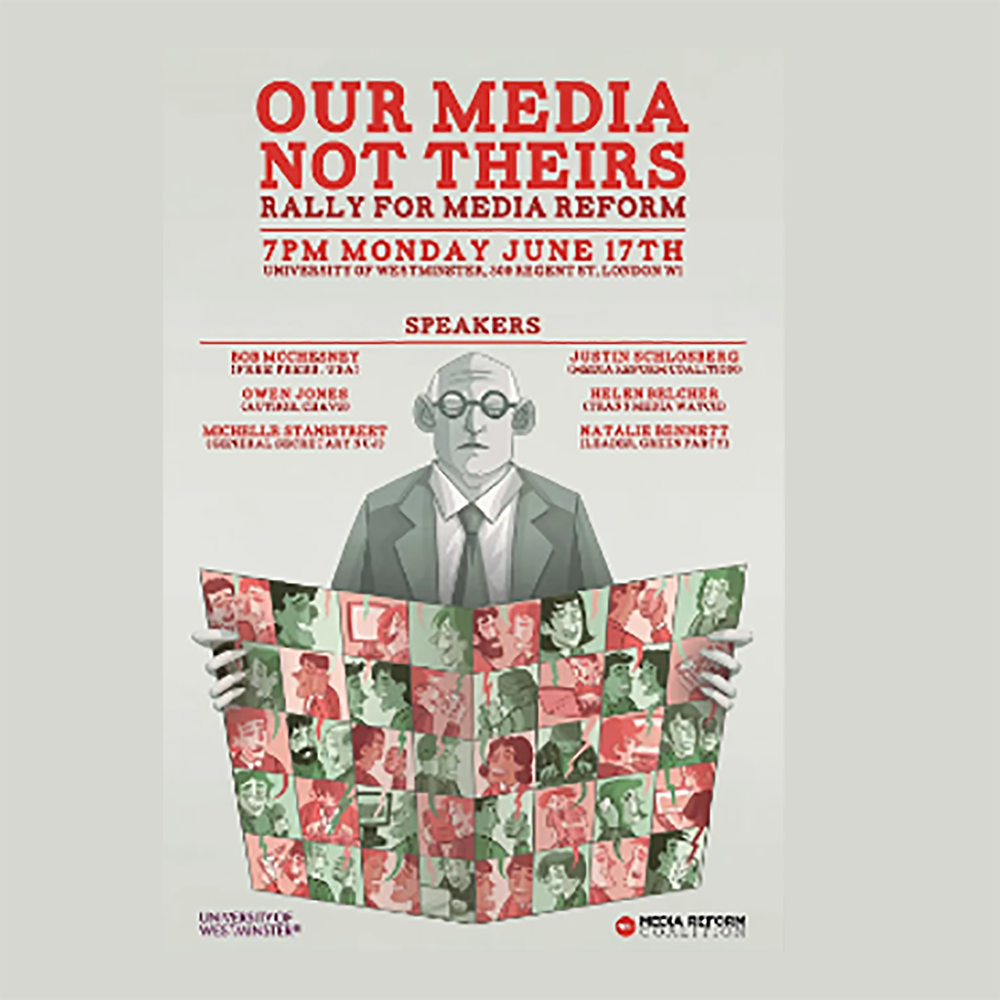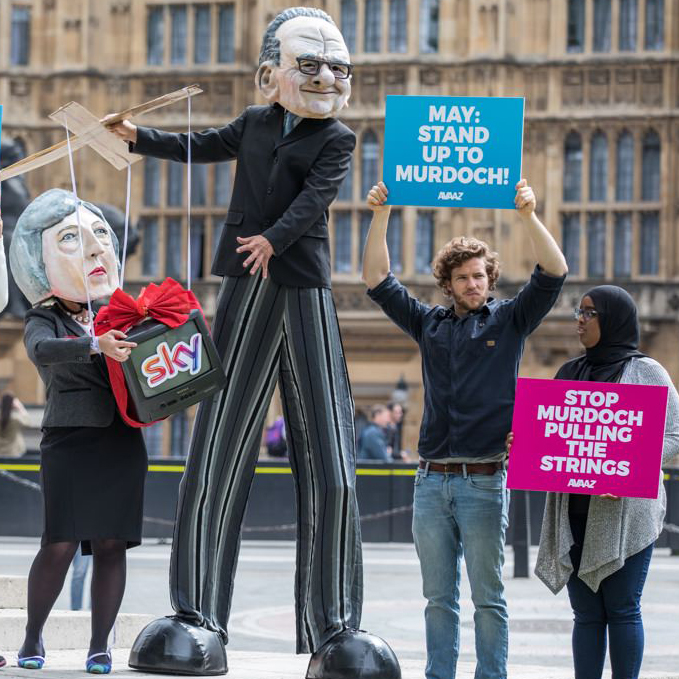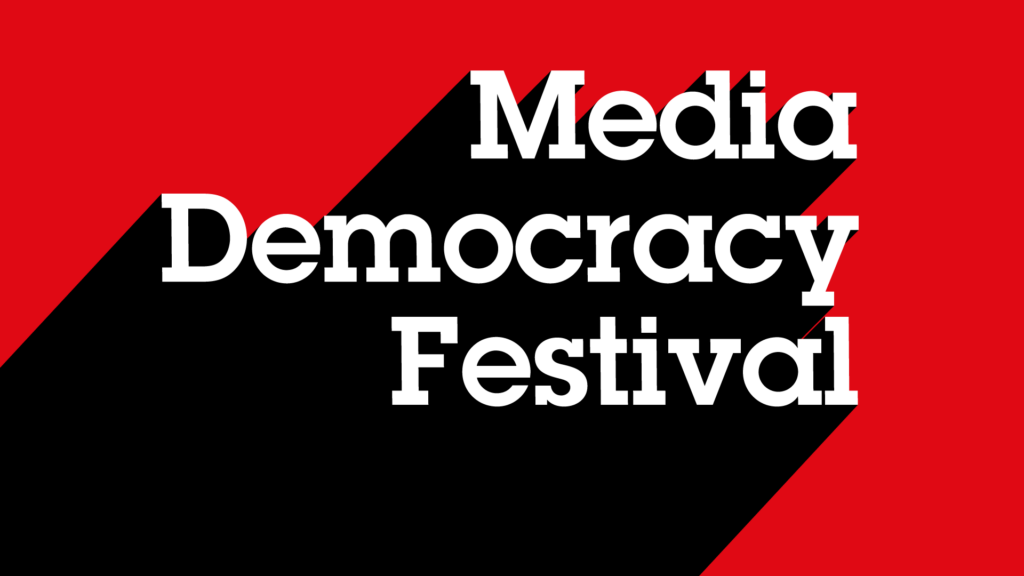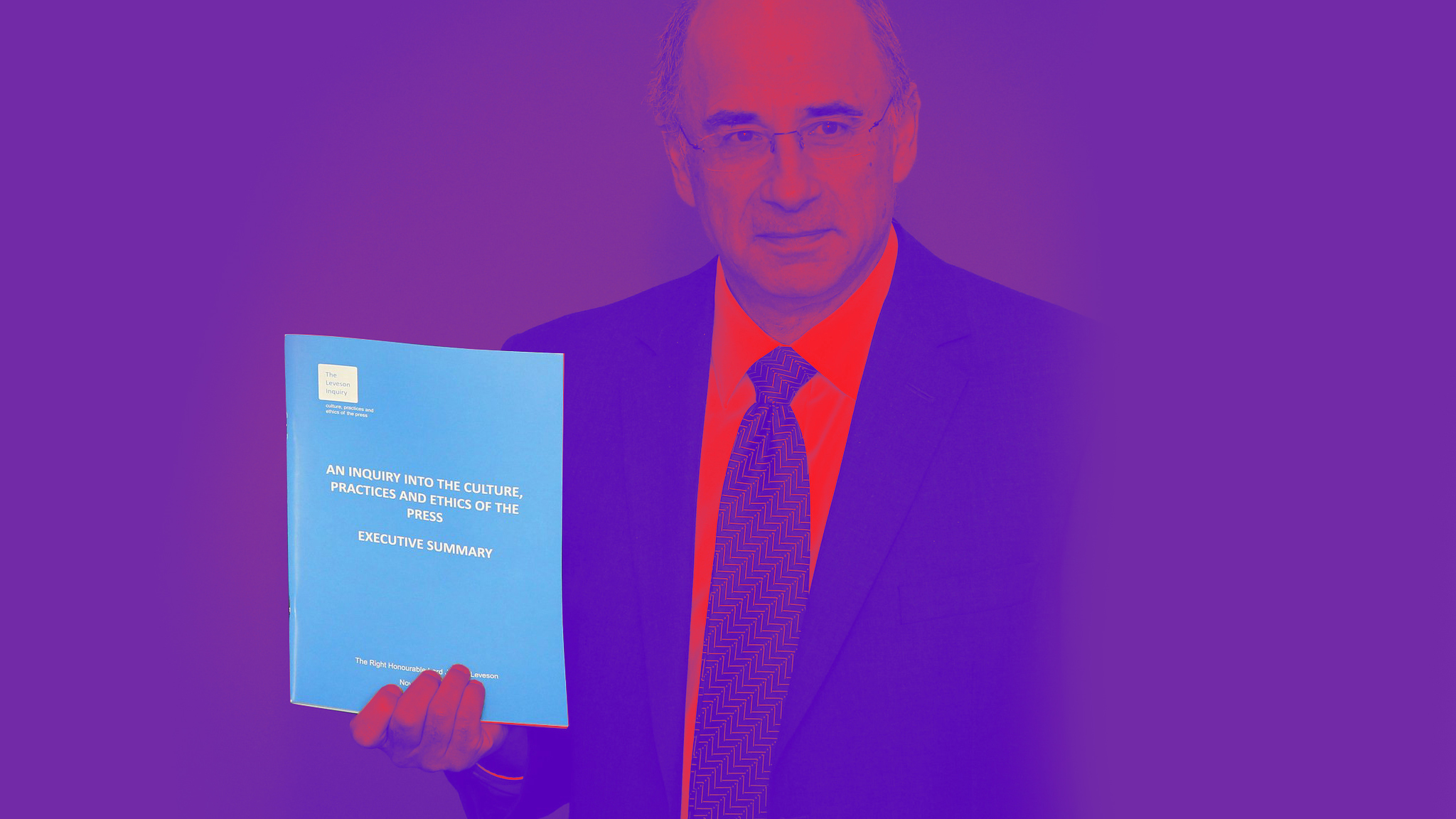The Media Reform Coalition’s story starts back in 2011. This was when the Leveson Inquiry into the culture and ethics of the British newspaper industry was launched, following revelations that the News of the World had hacked the phones of victims of crime. A group of academics who were working on the Spaces of the News research project set up the Coordinating Committee for Media Reform – later renamed the Media Reform Coalition (MRC). This brought together academics with over 30 pressure groups to engage with the Inquiry and other areas of media policy.
Over 2011 and 2012, the coalition produced five written submissions for the Inquiry and gave oral evidence. MRC produced Time for Media Reform: Proposals for a Free and Accountable Media, based on our submissions, and our policies were adopted by the Trade Union Council, with the endorsement of the National Union of Journalists (NUJ) and the broadcasting union BECTU.
MRC worked with the NUJ and Hacked Off to hold fringe meetings and dinners with MPs at all the party conferences in 2012, held a public rally in Westminster Hall, and a mass lobby of Parliament on the day that the Leveson report was published. Our work was referenced in several chapters of Leveson’s report.
In 2013 the Crime and Courts Bill went through Parliament, which created the legal backstop for the independent press regulator that Leveson recommended. We consulted with online journalists and small publishers about the best ways to protect them, and our work helped ensure that small-scale news bloggers could get the benefits of independent regulation.

Focusing in on media ownership
Throughout our campaigning during the Leveson Inquiry, we argued that we couldn’t just rely on better press regulation to improve standards are newspapers – we also had to challenge the disproportionate power these corporations held because they so much of our news media.
Our first report into media plurality, The Elephant in the Room, was launched at a rally in 2013. In 2014, MRC got funding both from the Joseph Rowntree Reform Trust to campaign on media ownership, and from the Open Society Foundation to work on media concentration with the TUC, NUJ and Campaign for Press and Broadcasting Freedom.
Who Owns the UK Media, the report coming out of this work, was first published in 2015. Updated figures were published in reports in 2019 and 2021, with our most recent Who Owns the UK Media? 2023 report showing the worsening situation of media concentration in the UK. Our calls for a cap on media ownership that would break up the biggest monopolies were adopted by the Labour and Green Parties in their 2015 election manifestos. All of our ownership reports are available in our Resources section.

Taking on Murdoch
In 2017, Rupert Murdoch’s company 21st-century Fox put in a bid to buy the entirety of Sky. This would have given him even more control over UK news, even after the systemic criminal behaviour at his newspapers had been revealed in the Leveson Inquiry.
MRC worked with the campaign organisation Avaaz to coordinate opposition to the bid. We produced research to show what the impact of the sale would be on UK news, and this research was crucial in getting the bid referred to Ofcom and investigated by the Competition and Markets Authority (CMA). We also worked with 38 Degrees to reveal that Murdoch’s lobbying of government had intensified at this time.
MRC was a core participant in the CMA investigation, who blocked the bid on plurality grounds. Ultimately, Murdoch pulled out of the bid and sold his stake in Sky – showing that our campaigning really can win.
Supporting local and public interest news
MRC has argued since the Leveson Inquiry that high quality public interest news is essential for democracy. In 2017, we partnered with the NUJ on its Local News Matters campaign, and published our report Mapping changes in local news 2015-17. This was cited by the Culture Secretary when launching the Cairncross Inquiry into the Future of News in February 2018.
We held a public meeting while the review was ongoing and made a substantive submission, including meeting with Frances Cairncross and others from the inquiry team. Our work was referenced in her final report. More recently, MRC has become part of the Public Interest News Network, an emerging coalition of organisations fighting for new sources of funding and regulation to support public interest news.

Events to build the movement for media reform
We’ve always known that changing our media is going to need more than just politicians and policy work – it needs a movement. We started running public events during our campaigning on the Leveson Inquiry, and have hosted many events since then. These have included working with Real Media to run the ‘Reclaim the Media’ national tour in 2016, running ‘A Media for the Many – Not the Few’ in 2017 as part of the Takeback Manchester Festival, and of course our annual Media Democracy Festival. This was first held in October 2015 and has taken place every year since then, building a significant in-person and online audience.
The future of public media and the media commons
The MRC has always recognised the importance of Public Service Broadcasting (PSB) in the UK as a bulwark against corporate media power – and also seen the dangers of attacks from government and a failure to adapt to technological and social changes. MRC founder members Des Freedman and James Curran were research leads on the Puttnam Inquiry into the Future of Public Service Television, which reported in 2016. MRC proposals on the future of the BBC were launched in Parliament in 2018, and in 2020 we worked with We Own It on their Future of the BBC campaign.

In 2021 we began our BBC and Beyond: Imagining a Media Commons campaign, funded by the Joseph Rowntree Charitable Trust (JRCT). This involved a series of online public events, interviews with dozens of organisations and individuals, all of which fed into our Manifesto for a People’s Media. In 2022 we secured repeat funding from JRCT to continue the BBC and Beyond campaign for the next two years.
We are continuing to work with We Own It on opposing Channel 4 privatisation, and with Voice of Listener and Viewer on their work defending public service broadcasting.
And that’s not all…
Along the way, MRC has produced an array of research and policy documents. We produced a Manifesto for Media Reform for the 2015, 2017 and 2019 elections, we have responded to dozens of government inquiries and consultations, and we are regularly invited to give oral evidence to committees.
In 2021, we published the Media Influence Matrix, in conjunction with the Centre for Media Data and Society at Central European University. This is a comprehensive, 250+ page report evaluating the regulation, governance, funding and ownership of the UK media. This has been accompanied by a series of shorter briefings on specific areas such as the Online Safety Bill and public interest journalism.
We have also reduced reports revealing media bias, including alleged Conservative bias during the 2016 London Mayoral election, news bias against Jeremy Corbyn, distorted coverage of anti-Semitism in the Labour Party, and demonstrating the bias towards the Conservative party in BBC news coverage.




